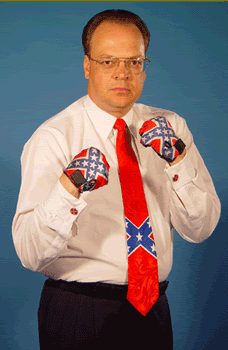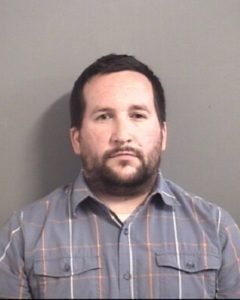
Independent Fundamentalist Baptist (IFB) churches are known for their commitment to literalism, Biblical inerrancy, and strict codes of personal conduct. Demographically, IFB churchgoers tend to be white, Republican, and middle to lower class. IFB churches also have anti-culture tendencies, as revealed in their support of the Christian school and home school movements. The IFB church movement has spawned numerous colleges, including Hyles-Anderson College, Tennessee Temple, Midwestern Baptist College, Baptist Bible College, Pensacola Christian College, Clarks Summit Baptist Bible Seminary, Maranatha Baptist University, Massillon Baptist College, Crown College of the Bible, Faith Baptist Bible College, Fairhaven Baptist College, Pensacola Bible Institute, and West Coast Baptist College. Though not explicitly IFB institutions, Bob Jones University, Liberty University, Cedarville University, and Cornerstone University are sympathetic to IFB beliefs and practices, and attract a number of IFB students.
Millions of Americans attend IFB churches. Add to this number Southern Baptist Convention (SBC) churches who hold similar Fundamentalist theological and social beliefs (please see Are Evangelicals Fundamentalists?), and you end up with a sizeable minority within the broad Evangelical tent. While some IFB apologists trace the movement’s genesis to the Modernist-Fundamentalist battle of the 1920s, most would say that the IFB church movement was birthed out of opposition to liberalism in the Southern Baptist Convention and American Baptist Convention in the 1950s and 1960s. Many of the fathers of the movement were Southern Baptist or American Baptist pastors who pulled their churches out of their respective conventions. I attended numerous Sword of the Lord conferences in the 1970s and 1980s where big-name IFB preachers trumpeted the astronomical numerical growth of their churches while delighting in spouting statistics that showed the SBC was in decline. I heard Jack Hyles, then the pastor of the largest church in the world — First Baptist Church of Hammond, Indiana — run down the list of the largest churches in America, pointing out how many of them were IFB churches. Hyles, along with countless other IFB preachers of that era, believed that their churches’ growth and the SBC’s decline were sure signs of God’s approval and blessing.
Today, the IFB church movement is in steep numerical decline. Churches that once had thousands of members are now closed or are shells of what they once were. IFB colleges have also seen drops in enrollment due to the fact that the feeders for these institutions — IFB churches — aren’t sending as many students to their schools. The Southern Baptist Convention, on the other hand, has been reclaimed from liberalism, and many of the largest churches in America are affiliated with the Convention. (The SBC is the first denomination that I am aware of that has reversed its course and returned to its Fundamentalist roots. The Convention is now home to a burgeoning Calvinistic movement. Many liberal/progressive SBC churches broke away in 1991 (1,800 churches) and formed the Cooperative Baptist Fellowship. Liberals who remain will either seek out friendlier associations or be excommunicated.)
For countless Christians, the IFB church movement is all they have ever known. Their entire lives, from baby dedications to graduations from IFB colleges, have been dominated and controlled by Baptist Fundamentalism. In many ways, the IFB church movement is a cult (please see Questions: Bruce, Is the IFB Church Movement a Cult? and One Man’s Christianity is Another Man’s Cult) that shelters families from the evil, Satanic outside world. All that congregants are required to do is believe and obey. Is it any wonder that the hymn Trust and Obey is a popular hymn in many IFB churches? Trust and obey, for there’s no other way, to be happy in Jesus, but to trust and obey. For those born and raised in the IFB bubble, all they know is what they have been taught by their parents, pastors, and teachers. Encouraged to make professions of faith at an early age, these cradle Baptists know little about the world outside of the IFB bubble. The bubble protects them from outside, worldly influences and helps to reinforce IFB beliefs and practices. (And when IFB youths run afoul of the strict rules found in IFB churches, they are sometimes sent off to IFB group homes and camps so they can be “rehabilitated.”)
The video below graphically (and beautifully) illustrates how deeply and thoroughly Fundamentalist beliefs dominate the thinking of those raised in Fundamentalist churches. Sung by Champion Baptist College’s (now Champion Christian University) tour group, the song I Have Been Blessed, is a compendium of IFB beliefs. The indoctrinated young adults singing this song really believe what they are singing. Outsiders might label these singers ignorant — and they are — but I choose to be more charitable, knowing that this song is simply a reflection of the tribal religion they have been a part of their entire lives.
I have great sympathy for people who know only what they have been taught in IFB churches and institutions. From the early 1960s to the mid-1990s, I was one such person. My parents were saved at an IFB church in the 1960s, and from that day forward we religiously attended IFB churches. When my parents divorced in the early 1970s, I continued to attend IFB churches. In many ways, these congregations became my family, giving me love and structure. After high school, I attended an IFB college, and from 1979 to 1994 I pastored IFB churches. (One church I co-pastored, Community Baptist Church in Elmendorf, Texas, would not call itself an IFB church due to its Calvinistic beliefs, but its social practices and anti-culture beliefs put it squarely in the IFB camp.) I was, in every way, a true-blue believer, never questioning my beliefs until I was in my late 40s. I know firsthand how IFB indoctrination affects a person intellectually and psychologically.
Not everyone, of course, is born into the IFB church movement. Others become members due to the movement’s aggressive evangelistic efforts and methodology. Particular targets are people who have messy, unhappy lives or have drug/alcohol addictions. Wanting deliverance from their present lives, these people are often quite receptive when they come in contact with IFB preachers and church members who promise them that, if they will believe the IFB gospel, then Jesus will make their lives brand new and deliver them from their chaotic, broken lives. Once saved, these newly minted Christians are encouraged to join the churches that cared enough about them to share the Good News® with them. And many of these people do indeed join IFB churches, but unlike those raised in such churches, these outsiders often have a harder time accepting IFB social strictures. More than a few of them stop attending church or seek out congregations that aren’t as extreme.
And then there are the people who deliberately seek out IFB churches to attend. Drawn to such churches by their need for doctrinal purity, certainty, or a safe haven from the world, they are thrilled to find churches that believe the Bible from cover to cover (even though, as anyone who has studied the IFB church movement knows, IFB preachers and congregants pick and choose beliefs just as non-IFB Christians do). Perfectionists, in particular, find IFB churches quite appealing. If IFB churches and their pastors are anything, they are certain that their beliefs and practices come straight from the mouth of the Christian God (God wrote the Bible, so its words are his). Perfectionists — as I know firsthand — love structure, control, and order.
Perfectionists make the perfect members. They joyously buy into the go-go-go, do-do-do, work-for-the-night-is-coming-when-no-man-can-work, better-to-burn-out-than-rust-out thinking that permeates IFB churches. There’s no time for rest and comfort. The Bible is true, judgment is sure, hell is real, and there are billions of lost souls who need to hear the IFB gospel. How dare anyone who truly loves Jesus live a life of ease while sinners are dying in their sins and going to hell. On and on go the clichés. I suspect that most successful IFB preachers have perfectionist tendencies.
Some IFB church members were once members of Evangelical or mainline churches. Concerns over perceived liberalism drive them to seek out churches that still believe in the Book, the Blood, and the Blessed Hope. Tired of pastors who refuse, they believe, to preach the whole counsel of God or to stand against worldliness, these disaffected Christians often find that IFB churches believe what they believe, so they leave their churches and join with the Baptists.
While I could give other reasons people attend IFB churches, those mentioned above cover the majority of people who attend Independent Fundamentalist Baptist churches.
Bruce Gerencser, 68, lives in rural Northwest Ohio with his wife of 47 years. He and his wife have six grown children and sixteen grandchildren. Bruce pastored Evangelical churches for twenty-five years in Ohio, Texas, and Michigan. Bruce left the ministry in 2005, and in 2008 he left Christianity. Bruce is now a humanist and an atheist.
Your comments are welcome and appreciated. All first-time comments are moderated. Please read the commenting rules before commenting.
You can email Bruce via the Contact Form.

